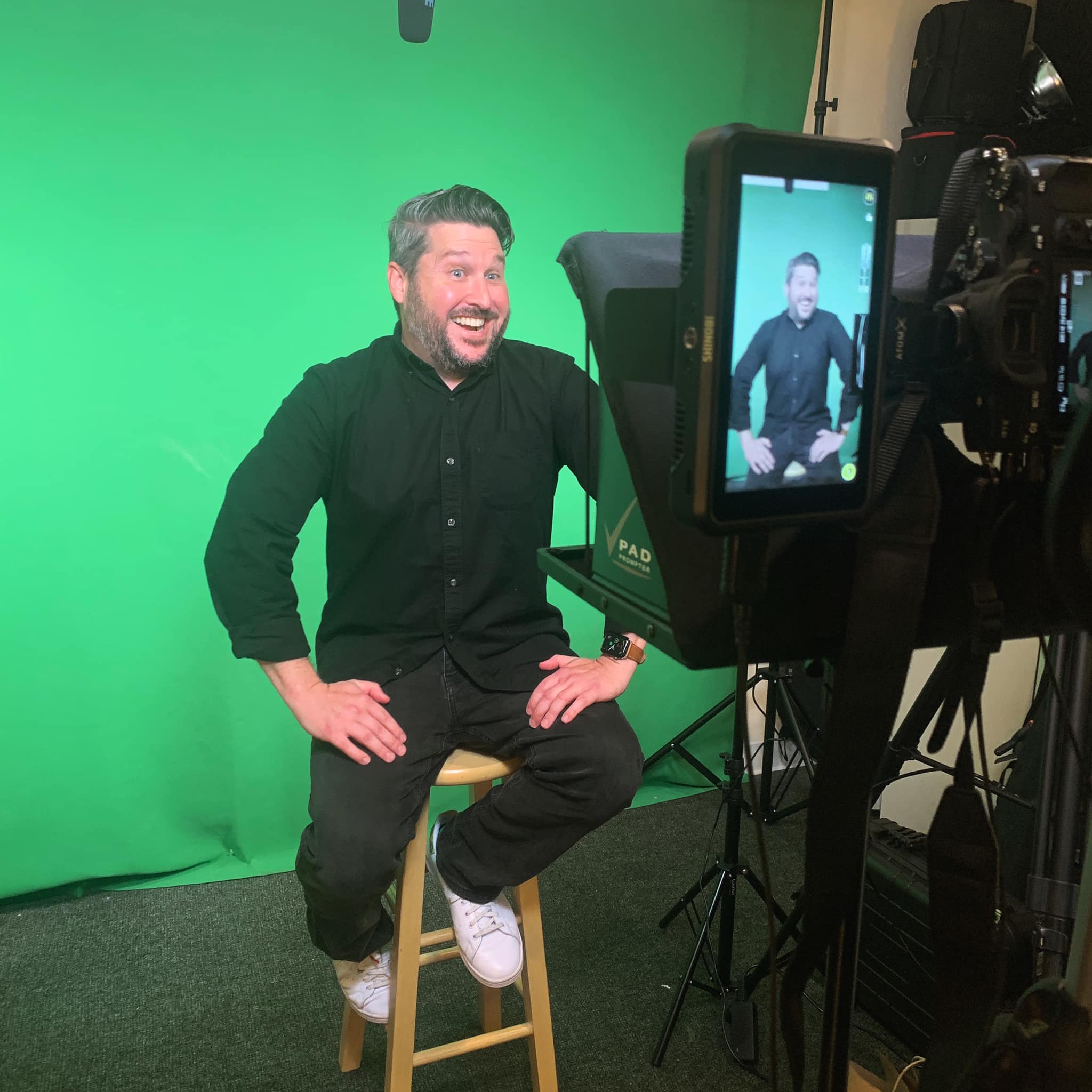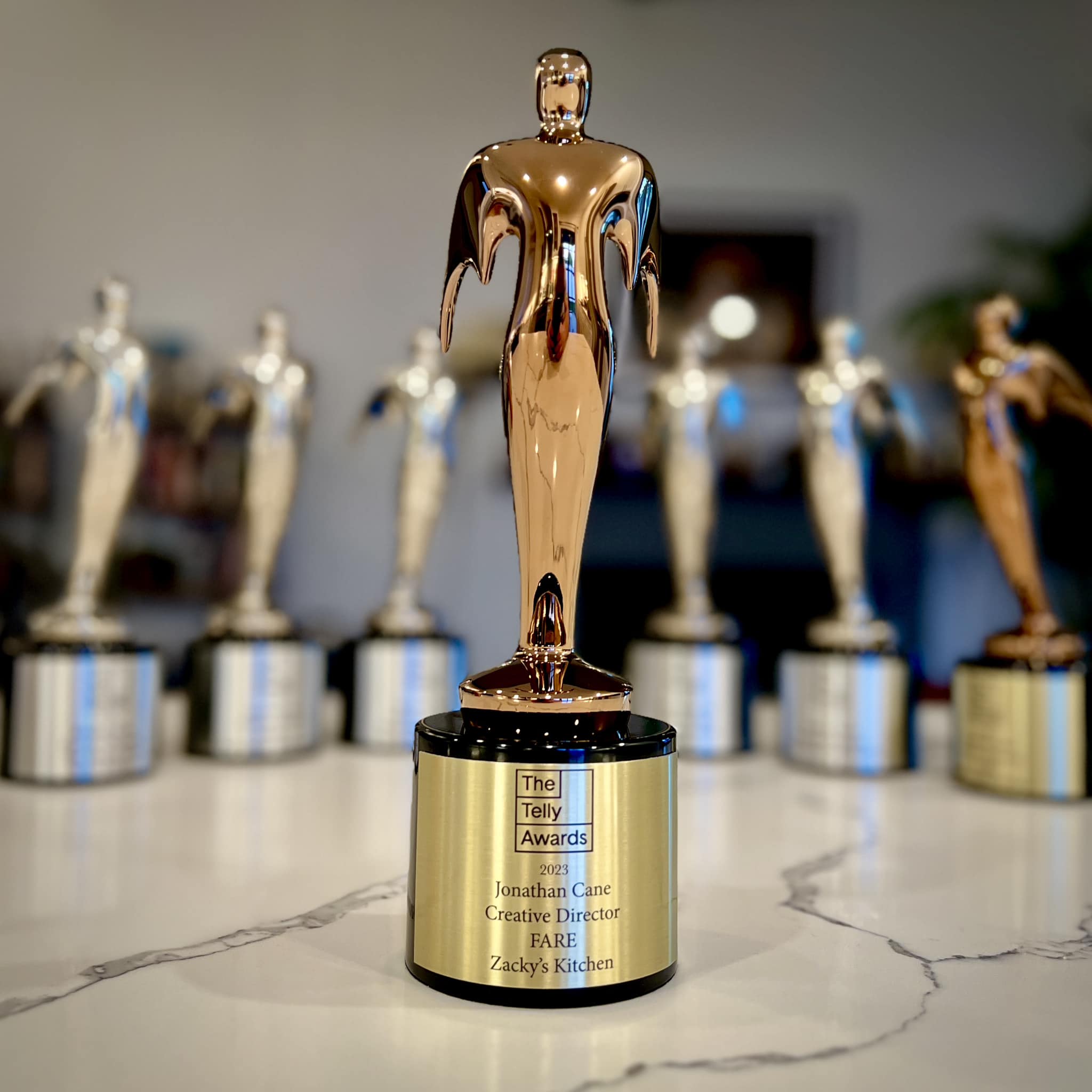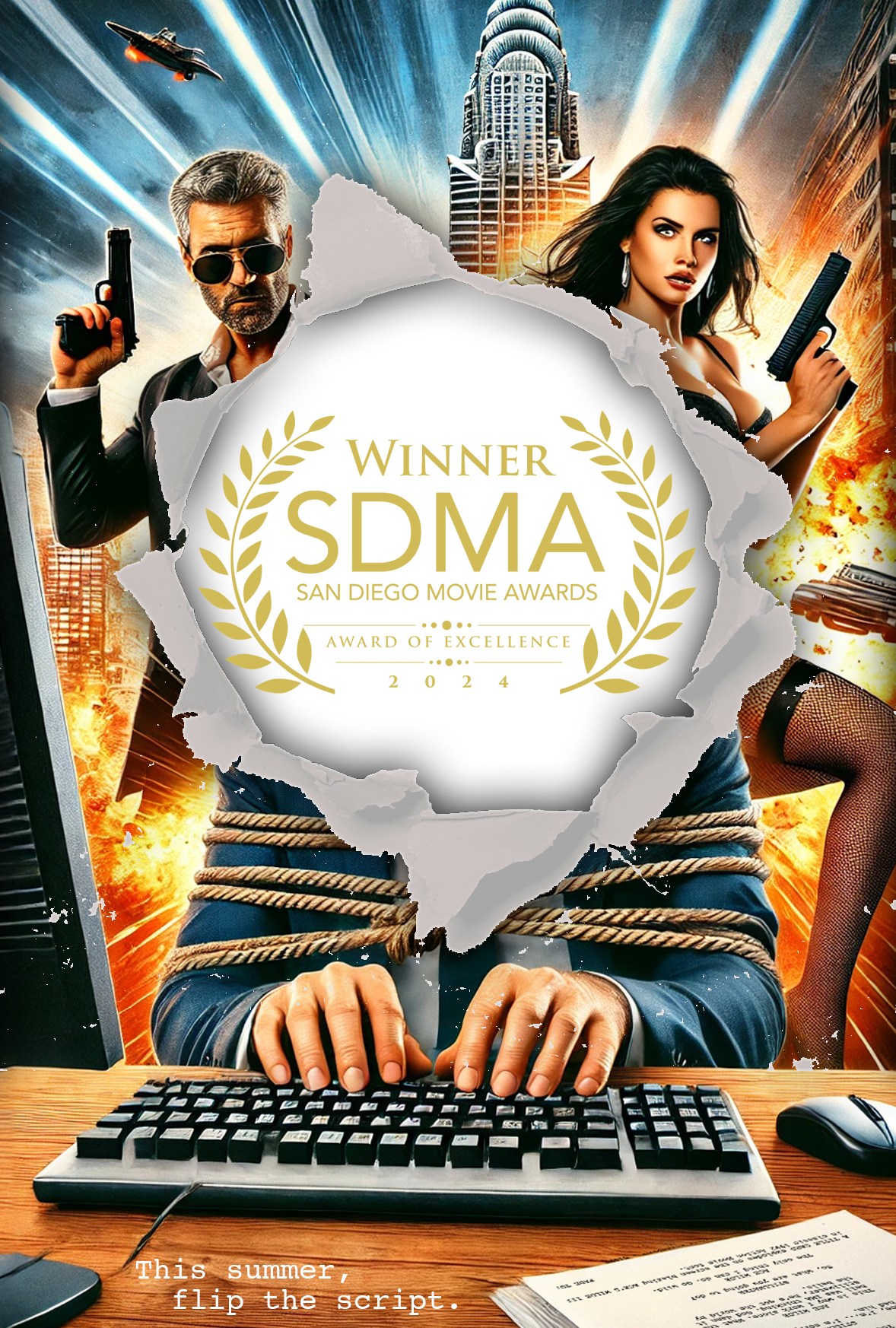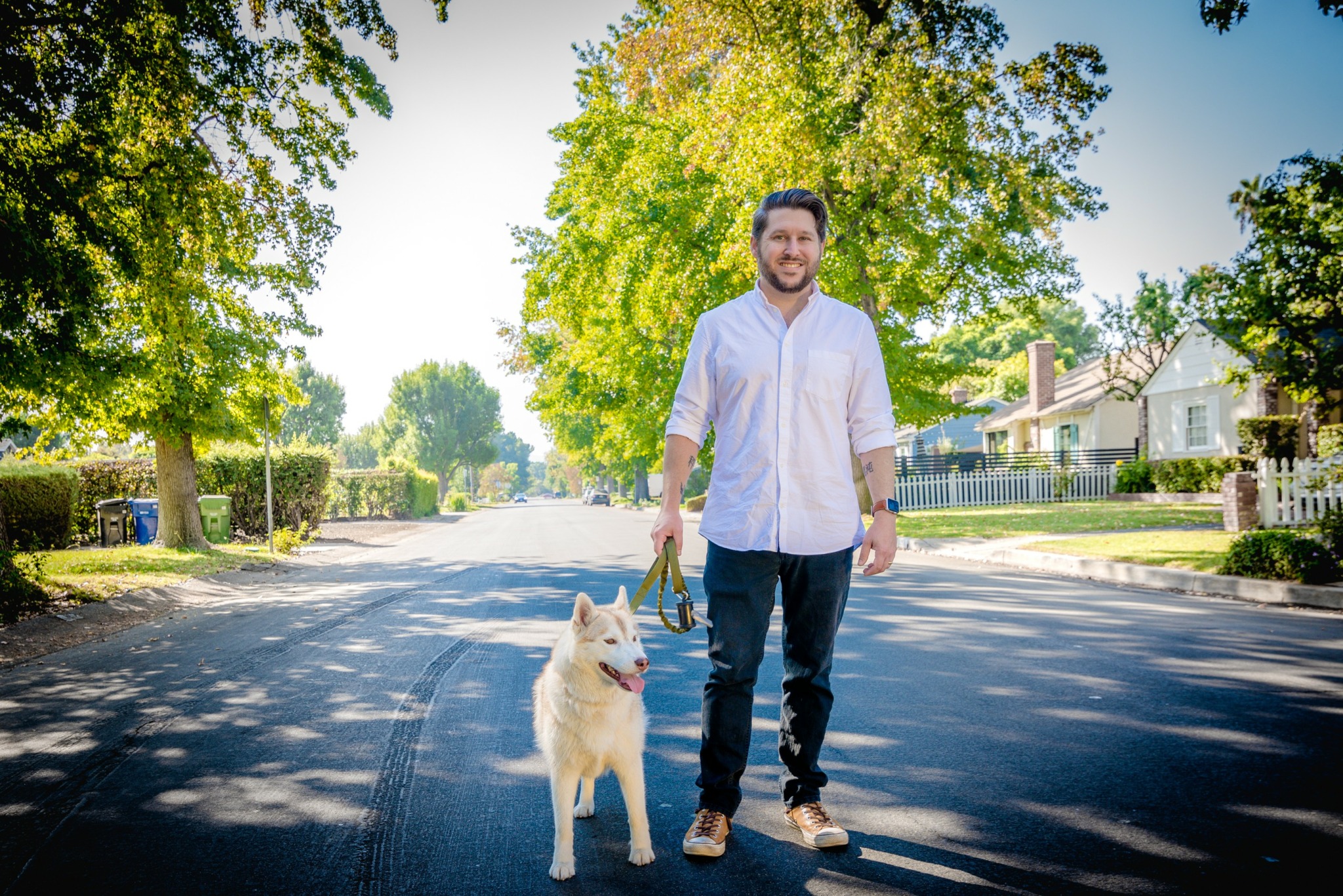Alright – so today we’ve got the honor of introducing you to Jonathan Cane. We think you’ll enjoy our conversation, we’ve shared it below.
Jonathan, appreciate you joining us today. When did you first know you wanted to pursue a creative/artistic path professionally?
TV was my babysitter, so I’ve been getting lost in stories since birth. As soon as I could talk, I was making them up—telling them, acting them out, casting my older brother in the supporting roles whether he liked it or not.
Before we had devices in our pockets, I had a pen in my hand. I’d write scripts, stories, and comic books, usually some spin on a classic myth, but updated to modern day. But the real moment was in 1991. I was turning twelve, and all I wanted was a camcorder. Not a bike. Not a Super Nintendo. A camera. I wanted to see my stories. Hear them. Bring them to life. I got a Hitachi Hi-8 video camera. It was the only one on the market that could jog backward “one frame’ – or so they claimed. That allowed me to try my hand at animation in video, and that opened my world to incredible possibilities.
That camcorder changed everything. Stop-motion Lego epics, cooking demos, sock-puppet reenactments of my favorite movies, and so many sketches. If you knew me in the 90s, you saw me with a camera in hand.
That was the spark. It wasn’t just a hobby; it was a calling. Even then, I wasn’t just filming, I was directing, producing, editing, marketing, and otherwise laying the foundation for a career I’ve now been lucky enough to live out professionally for more than two decades.
I’ve never really put the camera down.
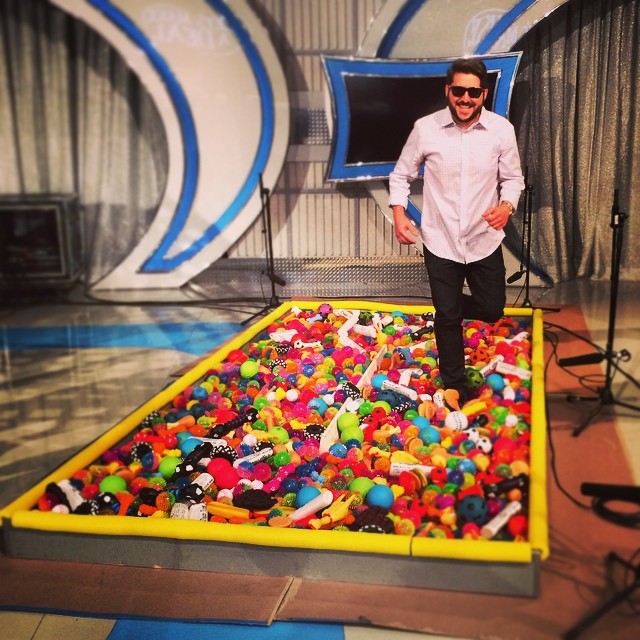
Jonathan, before we move on to more of these sorts of questions, can you take some time to bring our readers up to speed on you and what you do?
I’m Jonathan Cane, a creative director, content strategist, and professional story junkie who’s been chasing narratives since I was old enough to aim a camcorder and yell “action” to nobody in particular.
I got my start the way many of us do: by falling in love with stories. I grew up in West Palm Beach, Florida, where the TV was my first mentor and a camcorder my first real collaborator. From age twelve, I was directing backyard dramas and stop-motion epics that only a mother could love. That passion led me to NYU’s Tisch School of the Arts, where I graduated with highest honors and a BFA in Film and Television.
The real leap into the industry came in 1998, when I landed an internship at MTV. I was still a wide-eyed student, but within a few short years, I had sold my first show at just 22 and began carving out my professional identity as a showrunner and development executive. My time at MTV—from 1998 to 2007—was a crash course in creative leadership, youth culture, and how to tell a story that makes millions of people lean in.
One of the highlights of that era was creating and formatting Yo Momma, a hit series that blended comedy, competition, and culture in a totally new way. I’m especially proud of that show—not just for its success, but for how it tapped into the voice of a generation and helped redefine what unscripted content could be. That experience cemented my love for developing fresh formats, finding new voices, and building content that resonates.
Fast-forward 25+ years, and I’ve since led content and marketing strategy for everyone from BBC Studios to Tastemade to Discovery to startups in healthcare tech. I’ve launched campaigns for Porsche and Disney, built award-winning content for food allergy nonprofits, and even helped make a shoppable wine documentary for Robert Mondavi.
Today, I run Hurricane Media, a creative consultancy and storytelling engine that helps brands go from “hey, you’ve probably never heard of us” to “oh my god, that’s them!” I specialize in brand storytelling, content strategy, social media, and growth marketing, with a deep focus on turning passive audiences into passionate superfans.
My brand is the marriage of cinematic storytelling with a measurable marketing strategy. I don’t just make things look and sound good,I make them work. I bring big-agency thinking without the big-agency bloat. I lead with heart, humor, and the kind of obsessive attention to narrative that makes even a landing page feel like a page-turner.
I’m most proud of the moments where story meets impact, when a piece of content doesn’t just entertain, but changes behavior, sparks action, or makes someone feel deeply seen. That’s the magic trick I’m always trying to pull off.
Also, if you like dogs, whiskey, or dad jokes, we’re probably going to get along just fine.
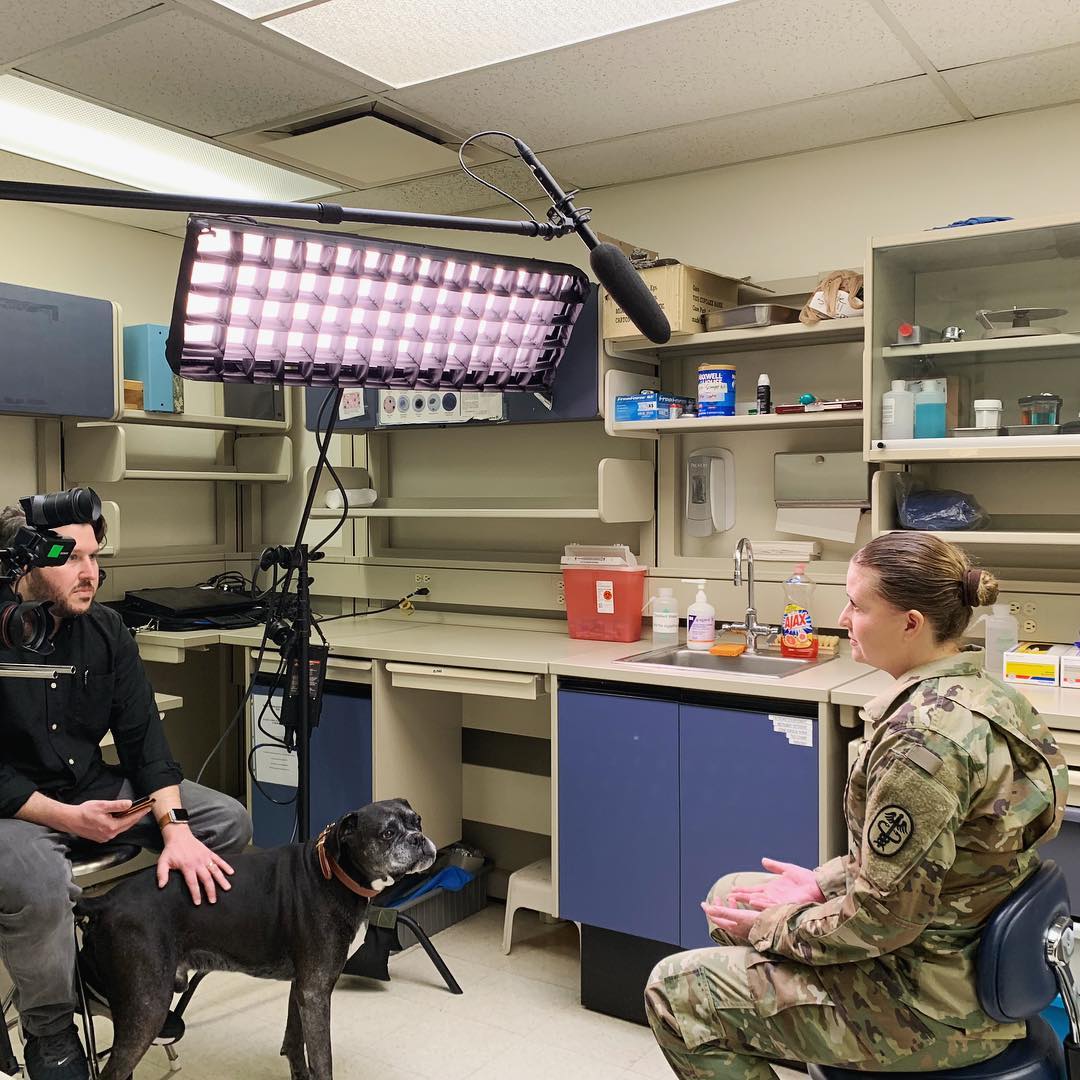
Can you tell us about a time you’ve had to pivot?
Like most people in Hollywood, I remember exactly where I was when the world hit pause in March 2020. One day I was deep in production conversations, pitching series, and mapping out unscripted slates—and the next, the entire industry was on ice. No shoots. No sets. No clear answers.
After two decades as a full-time TV producer and network executive, I was suddenly staring into the creative void. But instead of waiting for someone else to hit “resume,” I decided to hit “reset.”
That’s when I launched Hurricane Media.
It wasn’t just a business move—it was a bet on myself. I realized that the same storytelling skills I’d spent 20+ years honing for TV—writing, producing, shooting, editing—were perfectly suited to help brands tell their stories in a digital-first world. And with everything going remote, there was never a more urgent need for smart, emotionally resonant, high-impact content.
My first client was FARE, the world’s leading food allergy nonprofit. In a moment when most organizations were scaling back, we scaled up. Through bold, heartfelt campaigns and a complete digital transformation, we helped FARE grow its audience by 185%, increase engagement by 920%, and reach over 32 million views. That pivot didn’t just work—it thrived.
The success of that moment confirmed what I knew in my gut: great storytelling works in any medium, especially when it’s rooted in empathy, clarity, and purpose. Since then, Hurricane Media has evolved into a full-fledged creative agency, helping brands turn complex messages into compelling narratives that connect, convert, and endure.
Looking back, that pivot was one of the most challenging—and most fulfilling—chapters of my career. It reminded me that adaptability is just another word for creative problem-solving. And it proved that when one story ends, you always have the power to write the next one.
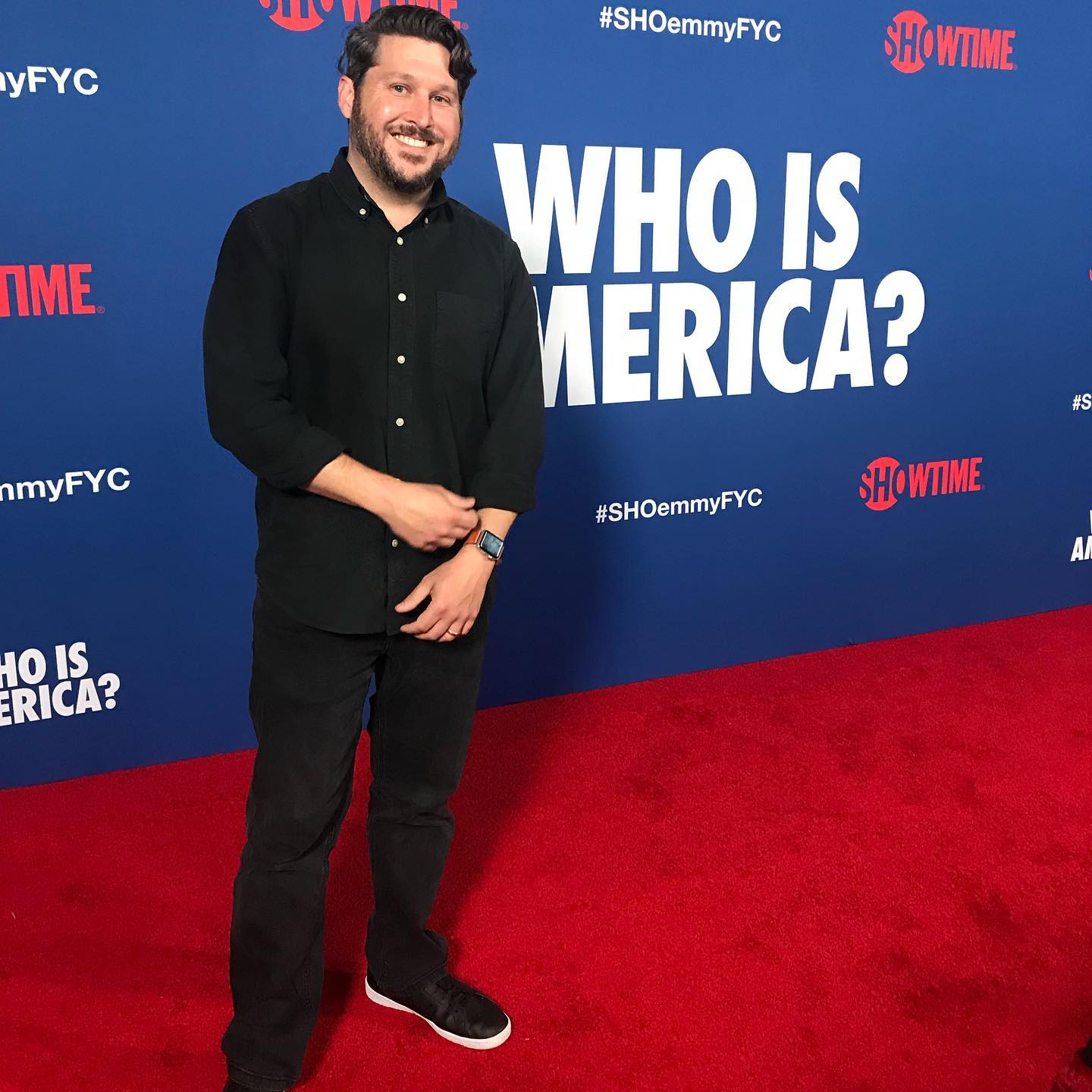
What do you find most rewarding about being a creative?
It’s that feeling when something you made, some little idea that started as a scribble in the margins or a thought you had in the shower, actually lands. When it connects. When it moves someone.
There’s nothing like that moment when a story hits home, when someone laughs at the joke you buried in act two, or sends you a message saying your campaign made them feel seen. That emotional resonance is the reward. That’s the high.
But you know what else feels really good? When one of those ideas gets greenlit and suddenly, that sketchy concept you pitched becomes a real production. There’s a crew of 60 to 100 people now gainfully employed, working hard, doing what they love, feeding their families, paying their bills, all because of a story you fought to tell. That’s powerful. To be able to turn creativity into opportunity, not just for myself but for a whole team of collaborators, is one of the best parts of this job.
And hey, I’m not shy about saying it. Making money from creativity is also incredibly rewarding. I mean, come on. Getting paid to make stuff up? To tell stories, solve problems, and help brands grow while doing what I love? That’s the dream. That’s not just art, it’s art that works.
At the end of the day, the most rewarding part is the alchemy of it all. Turning thoughts into things, ideas into income, and content into connection. That’s the magic trick I keep chasing, and the reason I’m still obsessed with this work decades later.
Contact Info:
- Website: https://www.hurricanemedia.us
- Instagram: https://www.instagram.com/goatcane
- Linkedin: https://www.linkedin.com/in/goatcane/
